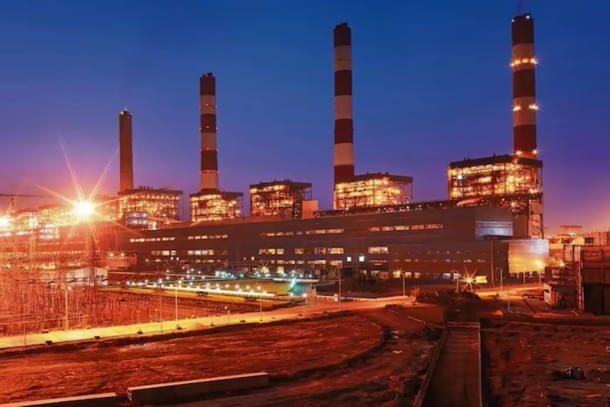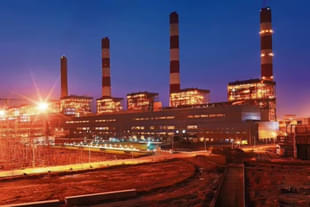World
Bangladesh Braces For Blackouts As Dhaka’s Plea To New Delhi For Adani Power Relief Falls Flat
Jaideep Mazumdar
Nov 03, 2024, 05:23 PM | Updated 05:26 PM IST
Save & read from anywhere!
Bookmark stories for easy access on any device or the Swarajya app.


Bangladesh is headed for a severe power crisis with New Delhi turning down a desperate plea from the Mohammad Yunus government in Dhaka to intercede with Adani Power to defer collecting outstanding power dues.
Bangladesh owes Adani Power over $850 million (more than Rs 7,200 crore), with the private power giant demanding Dhaka clear the dues by 7 November (Thursday) to avoid a potential cutoff in power supply.
Adani Power meets nearly 30 per cent of Bangladesh’s total power supply from its thermal plant at Godda in Jharkhand. Apart from Adani Power, three other power-generating entities supply power to the crisis-ridden country.
A thermal power plant at Payra in Bangladesh's Patuakhali district contributes 1,244 MW to the national grid, while the Rampal plant in Khulna division provides 1,234 MW, and the private Banskhali Power Plant in Chittagong district supplies 1,224 MW.
The Payra power plant is a Bangladesh-China joint venture, while the Rampal plant is a collaboration between Bangladesh and India. The Banskhali plant is owned by Bangladesh’s S Alam Group, a major industrial conglomerate now under investigation by the Yunus government due to alleged connections with the former Sheikh Hasina administration.
Defaults and Consequences
Bangladesh has been defaulting on its dues to Adani Power for many months but stopped payment altogether after the mob-led overthrow of the Sheikh Hasina government in early August this year.
As dues kept mounting and its pleas to the interim government in Bangladesh fell on deaf ears, Adani Power set a 31 October deadline for Dhaka to start clearing its dues or risk power supply being cut off.
Adani Power agreed to a request from the Bangladesh Power Development Board (BPDB) to accept a letter of credit (LoC) worth $170 million (around Rs 1,500 crore) in the third week of October.
But when the BPDB revealed that it would issue the LoC through the country’s Krishi Bank (a state-owned bank that provides loans to farmers) instead of the country’s major commercial banks, Adani Power refused to accept the LoC.
Krishi Bank has a paid-up capital of under $3.1 million, while dues owed to Adani Power stand at $850 million—over 274 times the bank’s capital. The BPDB attributes Bangladesh’s inability to settle these dues to an ongoing foreign exchange crisis.
Despite missing Adani Power's October deadline, the BPDB failed to propose any alternative repayment plan, prompting Adani Power to issue a final deadline of 7 November on Saturday (2 November).
Last week, Adani Power made it abundantly clear to the BPDB that it is fully prepared to cut power supply to Bangladesh unless a substantial portion of the dues is settled immediately, along with a concrete plan for clearing the remaining dues.
New Delhi Stays Out of It
BPDB officials briefed the interim government’s power advisor Muhammad Fouzul Kabir Khan on Adani Power’s ultimatum regarding the unpaid dues. Following this, the interim government, led by Mohammad Yunus, requested New Delhi to intervene and ask Adani Power to extend additional time for Bangladesh to settle the outstanding dues.
New Delhi has reportedly declined to intervene in the matter. The request for intervention was relayed to the Ministry of External Affairs (MEA) through the Indian High Commission in Dhaka.
MEA sources told Swarajya that Dhaka was told politely but firmly that Adani Power is a private entity and the Indian government does not interfere in the commercial operations of private companies in India.
Dhaka was told that the power purchase agreement between Bangladesh and Adani Power needs to be respected. It was also advised to pay at least a portion of the dues and come up with a concrete and inviolable repayment plan for the remaining dues.
The interim government was also informed that Adani Power had already halved power generation at its Godda plant from the installed capacity of 1496 MW to 724 MW as of October 31 due to Bangladesh's non-payment of dues.
This had already caused considerable losses to the company, and the Government of India would not take any action that could exacerbate financial losses for the private power company. Advising Adani Power to ease its stance on Bangladesh and allow the country to defer payment of its long-outstanding dues would negatively impact the company's bottom line.
This refusal by New Delhi has put Bangladesh in a serious situation. If Adani Power follows through on its threat to halt power supply starting 7 November, Bangladesh will be plunged into a severe power crisis that will hit its already crisis-ridden economy very hard.
Bangladeshi economist Shafiqul Islam Haque told Swarajya from Dhaka that it would be nearly impossible for the government to pay even a tenth of its total outstanding dues to Adani Power.
The country’s current foreign exchange reserves (including its gold reserves) stand at an estimated $22,000 million. “There is no way that the government can afford to pay a private Indian company even US $ 10 million from its reserves right now. Bangladesh is on the brink of a severe economic crisis and any such payout will hasten the impending disaster,” he said.
The BPDB has monthly dues to Adani Power that total nearly $100 million. However, over the past few months, it has been paying between $20 million and $50 million a month, thus causing dues to pile up.
Bangladesh did pay $100 million to Adani Power in the first half of last month (October) but sought a moratorium on further repayment for the next few months. That was unacceptable to Adani Power.
The sharp reduction in power supply from Adani Power coincides with a significant drop in production at Bangladesh's Rampal and Banskhali power plants, which have halved their output due to an acute coal shortage.
Bangladesh has been unable to import coal because it owes huge amounts to coal suppliers in Indonesia, India, Australia and South Africa.
If the existing power shortage in Bangladesh worsens—especially when Adani Power halts its supply—the hardest hit will be the country’s ready-made garments (RMG) sector, which is already facing numerous challenges.
Orders cancellations from many importers in western nations, labour trouble, increased oversight by global labour rights bodies, and shortage of power have already hit the sector which is a major foreign exchange earner and contributes around 12 per cent of the country’s GDP.
A Recipe For Unrest
Power cuts have become endemic and severe in Bangladesh, disrupting normal life in the restive country. More power outages due to Adani Power switching off supply will add to public unrest and could lead to protests in the country.
Following the overthrow of Sheikh Hasina's government and the establishment of an interim administration led by Mohammad Yunus, some advisors (ministers) in the current government called for a review of the power purchase agreement with Adani Power, arguing that Bangladesh is paying too much for the electricity supplied by the company.
Adani Power supplies electricity to Bangladesh from its Godda plant at a rate of Bangladeshi Taka 10 to 12 per unit, based on coal prices in Indonesia and Australia.





